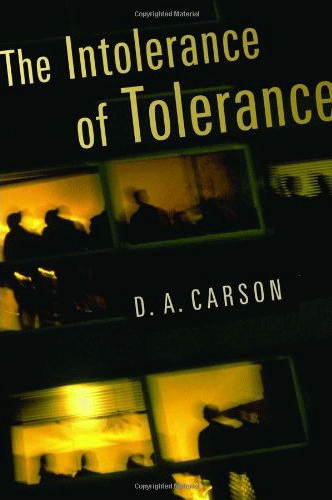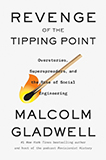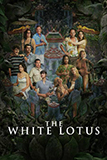Welcome to today’s installment of Reverent Sundays, where I write about an aspect of my faith. This can deal with recent books I have read on Christianity, my thoughts on religion and current issues, as well as particular messages I find touching and/or powerful. I am aware that most of my readers are not religious, and that is fine — you are more than welcome to not read these posts if they make you uncomfortable, enrage you, or bore you to tears. I am open to debates and discussions in the comments section as long as everyone remains respectful. Enjoy!
“Tolerance” — being one of today’s most popular buzzwords — is used in some of the most deeply and passionately defended beliefs in the political, religious, sociological, and philosophical arena. In our culture and society, being “tolerant” is revered as a ; it is something for which we all should strive, and those who are deemed “intolerant” are quickly shunned and ridiculed, sometimes even ostracized by the population.
Last month, I read about a book titled The Intolerance of Tolerance by Professor of New Testament and renowned Christian author D.A. Carson. And the central premise of the book is this:
In a society obsessed with tolerance, we are actually not tolerant at all.
Because in order to claim tolerance, we have had to re-define the word, and doing so has put us on a thin patch of ice.
 According to Carson, the old meaning of tolerance presupposed disagreement. One person expresses a belief and another disagrees with him while still holding fast to his own. In other words, he accepts that other beliefs exist outside of his own.
According to Carson, the old meaning of tolerance presupposed disagreement. One person expresses a belief and another disagrees with him while still holding fast to his own. In other words, he accepts that other beliefs exist outside of his own.
Contrary to the old tolerance, today’s version of tolerance actually accepts all differing views. That is to say, we have gone from accepting the existence of other views to believing that we need to accept all differing views. And if you think about it, there is no way that we can do this without rejecting the notion of absolute truth!
To go on even further, not only does this concept open the door as widely to pedophiles as it does to philanthropists, it subtly closes the door to all of those whom it professes to be tolerating: it rejects all those who believe that there is a truth.
So what does this mean for Christians like us who believe in an absolute truth? Because the new tolerance concludes that there can be no tolerance for people who do not agree with the contemporary usage of the term, we are called intolerant. Even if we hold steadfast to the old definition of tolerance and say, “I will tolerate you even though I believe that you are wrong, sinful even,” we are in danger of being labeled intolerant and bigoted. Hence, this new tolerance is inherently intolerant.
The Intolerance of Tolerance is not a light read, to be sure. But it raises some very good points, questions, and challenges for Christians living in a secular world. Carson spends much of the book building a logical case against the new tolerance, that it is inconsistent, incoherent, and, ironically, intolerant. He also looks at tolerance from a historical standpoint and goes on to suggesting ways Christians can adopt if we wish to combat the new tolerance in a biblical manner.
In short, the Christ follower must adhere to the objective truth found in the scriptures despite living in a climate where religious relativism is the accepted norm.
On a more personal note, I used to have a friend who liked to say, “I believe myself to be a very tolerant person. But I am intolerant of intolerance.” I remember thinking to myself whenever he said that, ‘No, you’re just intolerant of anyone who disagrees with you!’ I would love to send him a copy of this book if I could track him down.











Oh wow, this book feels like it kinda fit my view on a previous post regarding homosexuality as a christian !:) I commented on it by asking why there is a need on having a stand for or against homosexuality. I guess this kinda fits the picture. Tolerating something or someone still feels judgemental in some sort of form and if we, as heterosexuals, can stop ‘tolerating’ homosexuals and just live and let live, the world would be a much better place
I think Carson is begging the question trying to conflate:
political tolerance — which views will be suppressed through state action, or fail to receive full public support.
public policy tolerance / rhetoric– which views will be allowed to influence laws. That is how arguments about public policy should be made.
tolerance in manners — how to act with other people in social settings
“old tolerance” is about political tolerance and nothing much has changed there other than free speech is even more broadly supported than it was 2 generations ago.
“new tolerance” is about tolerance of manners and nothing has changed there for thousands of years. Don’t deliberately be rude to people who do not share your values in one area with whom you have to work in other areas.